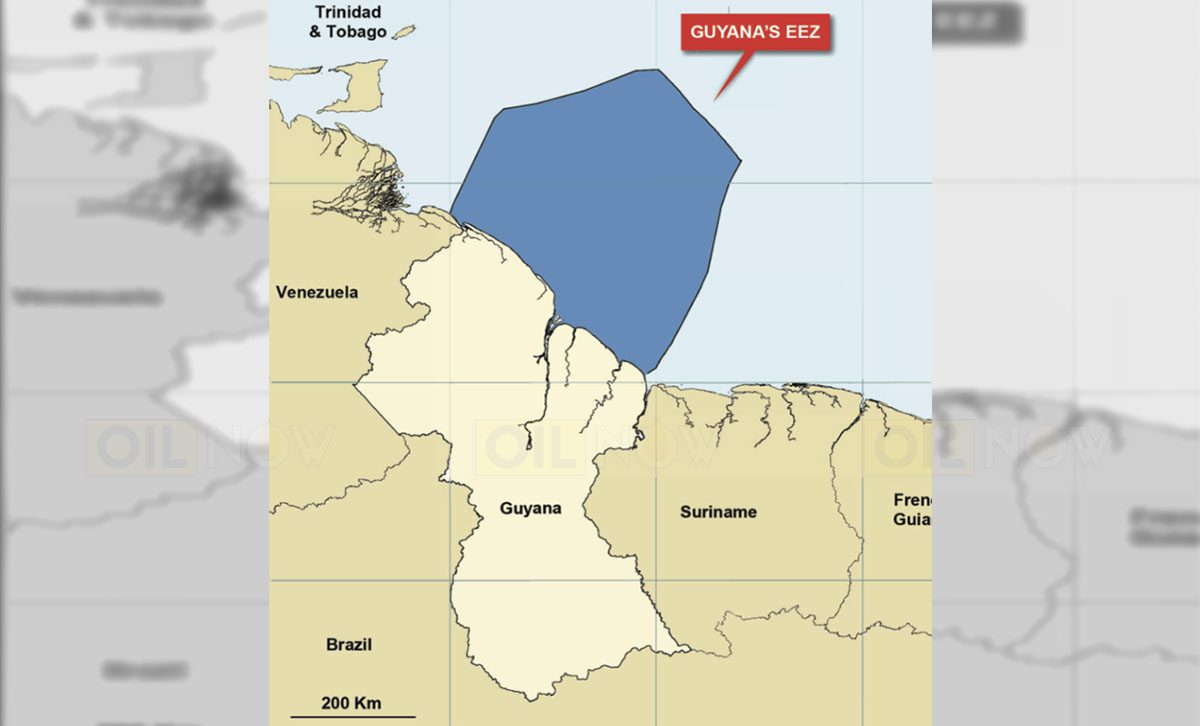Historical Context
The 1899 Arbitral Award, which definitively settled the land boundary between Guyana and Venezuela, was the result of a legitimate process that was set in train in 1897. Prior to 1897, the boundary between British Guiana and Venezuela had never been formally agreed. The last quarter of the 19th Century was a heightened time of the Monroe Doctrine, and the United States of America became embroiled in the frontier issue strongly supporting the Venezuelan demand that Britain submit the dispute to formal settlement. Eventually, Britain agreed in the 1897 Treaty of Washington, concluded between Britain and Venezuela, to submit the dispute to international Arbitration. By virtue of Article XIII of the said Treaty, the Parties agreed to consider the results of the proceeds of the Arbitration as ‘a full, perfect and final’ settlement of all the questions referred to the Arbitrators.
Acceptance of the Award
The 1899 Award was accepted by both parties for nearly sixty-three years. The two sides acted upon the Award when they established a Mixed British/Venezuelan Boundary Commission to demarcate the boundary. This demarcation was completed, and a joint report and map of the boundary were signed by both the British and Venezuelan Boundary Commissioners in 1905.
After 63 years elapsed, Venezuela claimed Award was null and void
Some sixty-three years, after Venezuela had accepted the Award and sent its technical officials to help demarcate the boundary that the Tribunal laid down, Venezuela, suddenly, in 1962, claimed that the Award was null and void.
Venezuela’s main basis offered for the claim of nullity and invalidity was a memorandum which was written by Severo Mallet-Prevost, a junior American lawyer on the Venezuelan side during the 1899 arbitration. The lawyer alleged in a Memorandum, written in 1944 after he was awarded the Order of the Liberator by the Venezuelan government, which he directed should only be published posthumously, that the Award was the result of a political deal which he alleged was made by some of the judges on the Tribunal. No evidence was provided, nor has there ever been any evidence provided by Venezuela, in support of this claim.
When in 1966 Guyana was about to become independent, the British agreed to sign the Geneva Agreement. Having identified the controversy as that raised by Venezuela’s contention of nullity of the 1899 Arbitral Award, the Geneva Agreement went on to stipulate the means which the Parties agreed must be followed to resolve the controversy. Guyana became a Party to this Agreement on independence.
Venezuela has worked hard over the years at turning the controversy about her contention of invalidity of the Arbitral Award into a dispute about ownership of territory and has laid claim to the entire Essequibo Region and the maritime spaces appurtenant to it. In addition, Venezuela has over the years resorted to threats, acts of intimidation, seizure and attempted seizure of land and maritime territory and various forms of economic aggression, in an effort to force Guyana to surrender to its illegal claim to the Essequibo region.
The 1966 Geneva Agreement provides for a series of procedures for the settlement of the controversy of invalidity starting with a MixedCommission and ending with a decision by the United Nations Secretary- General. It provides in Article IV (2) that:
If, within three months of receiving the final report, the Government of Guyana and the Government of Venezuela should not have reached agreement regarding the choice of one of the means of settlement provided in Article 33 of the Charter of the United Nations, they shall refer the decision as to the means of settlement to an appropriate international organ upon which they both agree or, failing agreement on this point, to the Secretary -General of the United Nations.
The Good Offices Process
Since Guyana and Venezuela could not agree on the choice of a means of settlement, the matter was referred to the United Nations Secretary- General. In 1989, the Secretary General chose the Good Offices Process as the means of finding a solution to the controversy. The Good Offices Process was in operation for over twenty-seven years of the life of the Geneva Agreement.
When in 2014 it became clear to Guyana that Venezuela was unwilling to meet its obligations and unprepared to act in good faith under the Good Offices Process, it took the decision to review its options within and consistent with the Geneva Agreement.
In this regard, on 3 March 2015, the Government of the Co-operative Republic of Guyana approached the Secretary General of the United Nations to act in accordance with his obligation under the Geneva Agreement to choose another of the means of settlement as stipulated in Article 33 of the UN Charter. Guyana had indicated its preference for a judicial settlement of the issue, which it expects to be a final and binding decision on Venezuela’s contention that the Award is null and void.
Thereafter, in keeping with the undertaking of the UN SecretaryGeneral to conduct such an exercise, a number of Technical Missions from the United Nations visited Guyana and Venezuela to discuss the options under the Geneva Agreement for a resolution of Venezuela’s contention that the Arbitral Award of 1899 is null and void.
The Way Forward
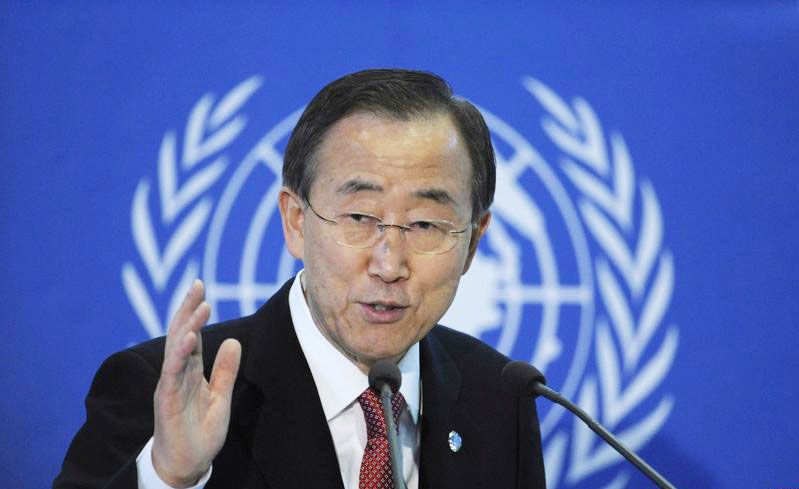
On 12 November 2015, Secretary General Ban Ki Moon presented his proposals, The Way Forward, to the parties. He proposed a final twelve-month continuation of the Good Offices Process (until November 2016) and indicated that: “If a practical solution to the controversy is not found before the end of his tenure, the Secretary General intends to initiate the process to obtain a final and binding decision from the International Court of Justice.”
The Secretary General’s Decision
On 16 December 2016 the UN Secretary General communicated his decision under Article IV (2) of the 1966 Geneva Agreement in a letter dated 15 December 2016 to the President of Guyana. It stated:
“Initially, the Good Offices Process will continue for one final year until the end of 2017, with a strengthened mandate of mediation. If, by the end of 2017, the Secretary General concludes that significant progress has not been made toward arriving at a full agreement for the solution of the controversy, he will choose the International Court of Justice as the next means of settlement, unless your Government and the government of Venezuela jointly request that he refrain from doing so…”
Mr Ban Ki Moon determined that the final year of mediation would be led by a Personal Representative of the Secretary General, to be appointed by Mr. Antonio Guterres, the incoming Secretary-General at his discretion, soon after taking office.
On 23 February 2017, the new Secretary-General appointed Ambassador Dag Nylander, a Norwegian diplomat, as his Personal Representative on the controversy between Guyana and Venezuela. The best efforts of Ambassador Nylander did not result in significant progress in arriving at a full agreement on the controversy.
UN Secretary General opts for ICJ solution
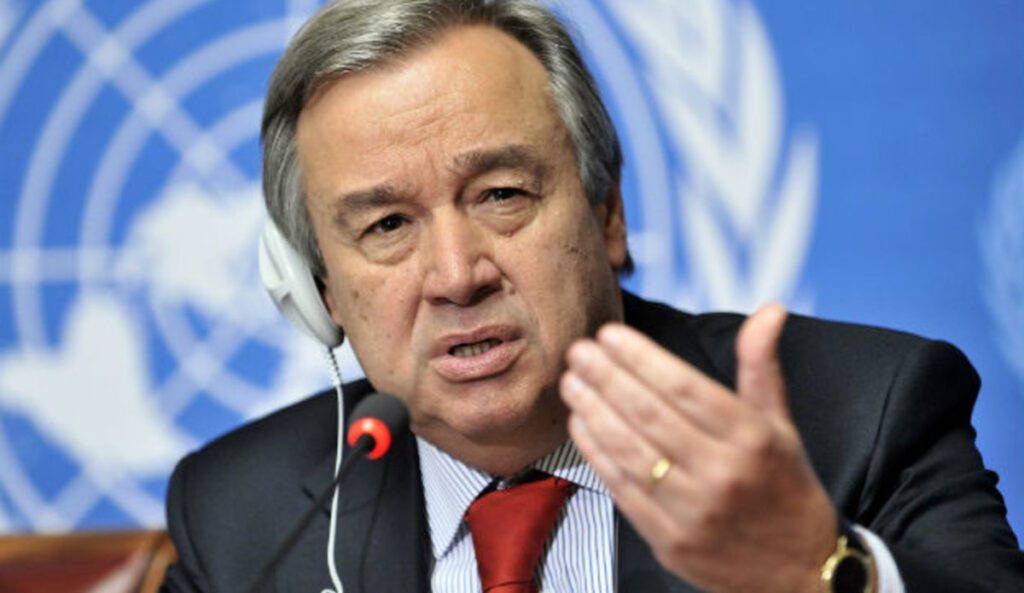
On 30 January 2018, the United Nations Secretary-General, His Excellency Antonio Guterres, pursuant to his mandate under the Geneva Agreement of 1966, chose the International Court of Justice (ICJ) as the means of settlement of the controversy. Guyana thereafter, on 29 March 2018 filed its Application with the ICJ, requesting the Court to adjudge and declare, inter alia, that the 1899 Arbitral Award is valid and binding upon both Guyana and Venezuela.
On 18 June 2018 Venezuela communicated to the Court that it would not participate in the case. Venezuela asserted that the ICJ has no jurisdiction in the matter – notwithstanding the Geneva Agreement and the Secretary General’s choice of the ICJ as the means of conclusive settlement.
The Court considered, pursuant to Article 79, paragraph 2, of its Rules, that, in the circumstances of the case, it must resolve first of all the question of the Court’s jurisdiction, and that this question should accordingly be separately determined before any proceedings on the merits. In that regard, the Court set time-limits for the pleadings of the Parties relative to the jurisdiction phase. On 19 November 2018, in accordance with the ICJ’s timetable, Guyana submitted to the Court its Memorial on Jurisdiction. The Court had established 18 April 2019 for the submission of a Counter-Memorial by Venezuela. However, that date passed with no response from Venezuela. It later sent to the Court a Memorandum – “to assist the Court”.
ICJ rules it has jurisdiction
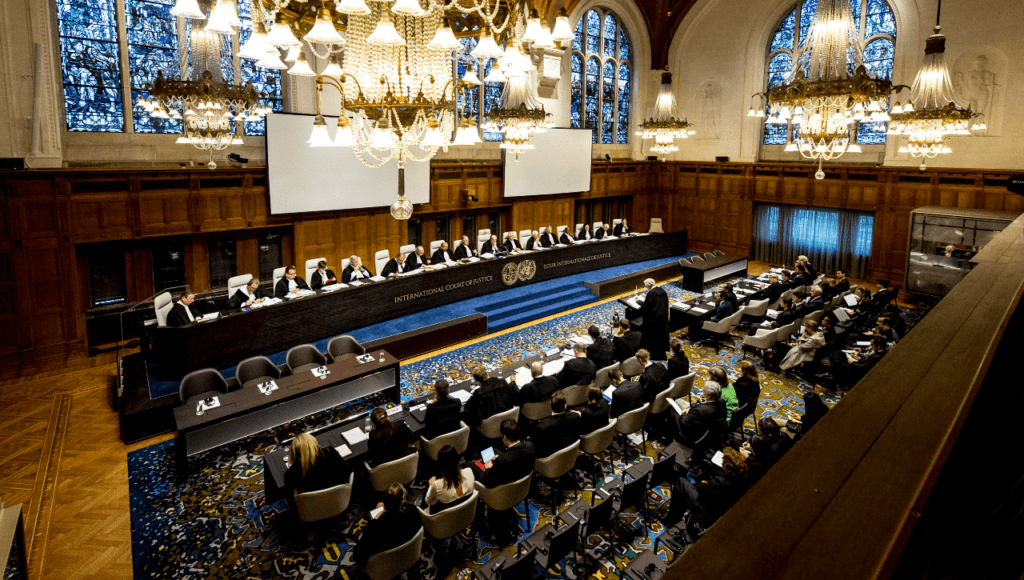
The Court, on 18 December 2020 ruled that it “has jurisdiction to entertain Guyana’s claims concerning the validity of the 1899 Award about the frontier between British Guiana and Venezuela and the related question of the definitive settlement of the dispute regarding the land boundary between the territories of the Parties.”
Proceeding on the Merits
Following a case management meeting convened on 26 February 2021 the Court issued Order No. 171 dated 8 March 2021 which fixed the following time-limits for the filing of written pleadings on the merits of the case: 8 March 2022 for the Memorial of the Cooperative Republic of Guyana and 8 March 2023 for the Counter Memorial of the Bolivarian Republic of Venezuela.
Guyana Government and Opposition hold unified front
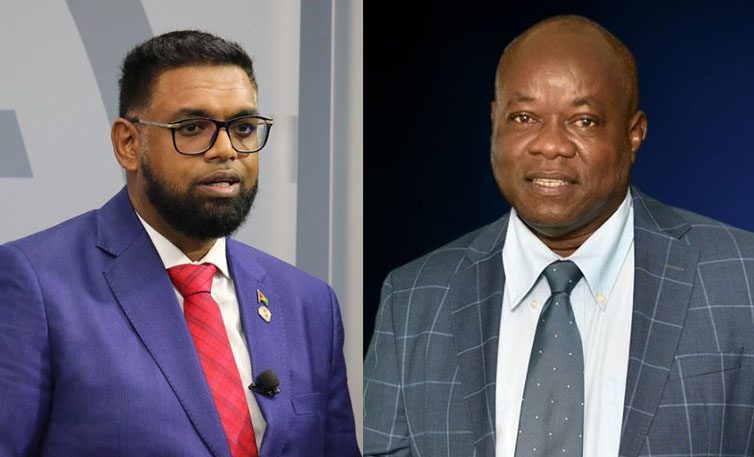
Mohamed Irfaan Ali, President of the Cooperative Republic of Guyana and Aubrey C. Norton, MP., Leader of the Opposition met at the Office of the President on Tuesday, October 24, 2023, to discuss the existential threat by Venezuela to Guyana’s sovereignty and territorial integrity.
They reaffirmed the commitment to the current judicial process that is being conducted under the aegis of the International Court of Justice and are convinced that this would finally resolve the question raised by Venezuela over the validity of the 1899 Arbitral Award.
RELATED
Joint statement by Guyana President, opposition leader on Venezuela
CARICOM in strong defense of Guyana’s sovereignty, condemns Venezuela’s “threat of force”
US says Guyana has right to develop its resources
US State Department says Guyana/Venezuela land boundary should be respected
Brazil signals full support for world court process in Guyana-Venezuela border controversy
Commonwealth backs Guyana in territorial controversy with Venezuela after recent threats
Guyana reaffirms right to pursue investment in its territory, as Venezuela objects to bid round


